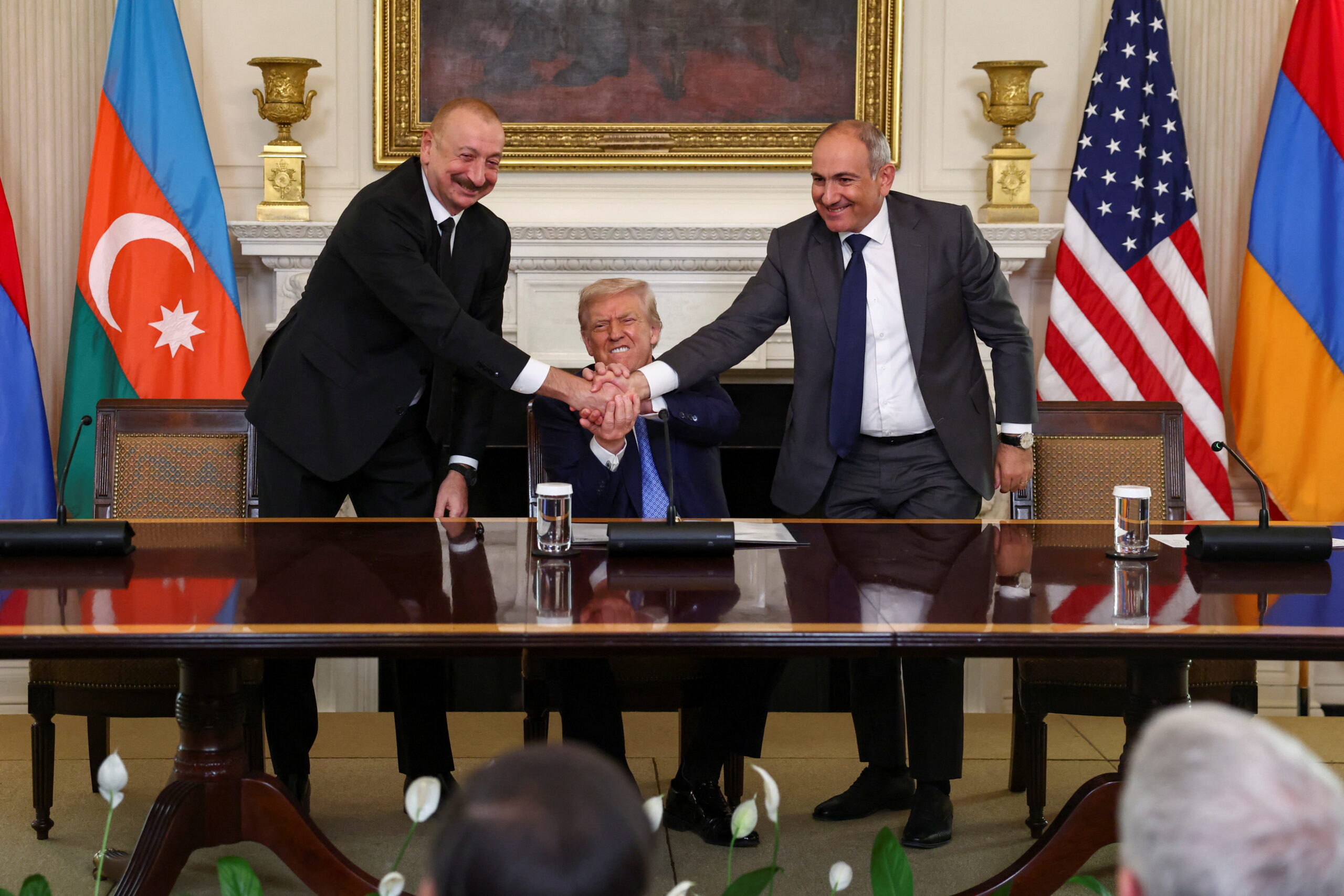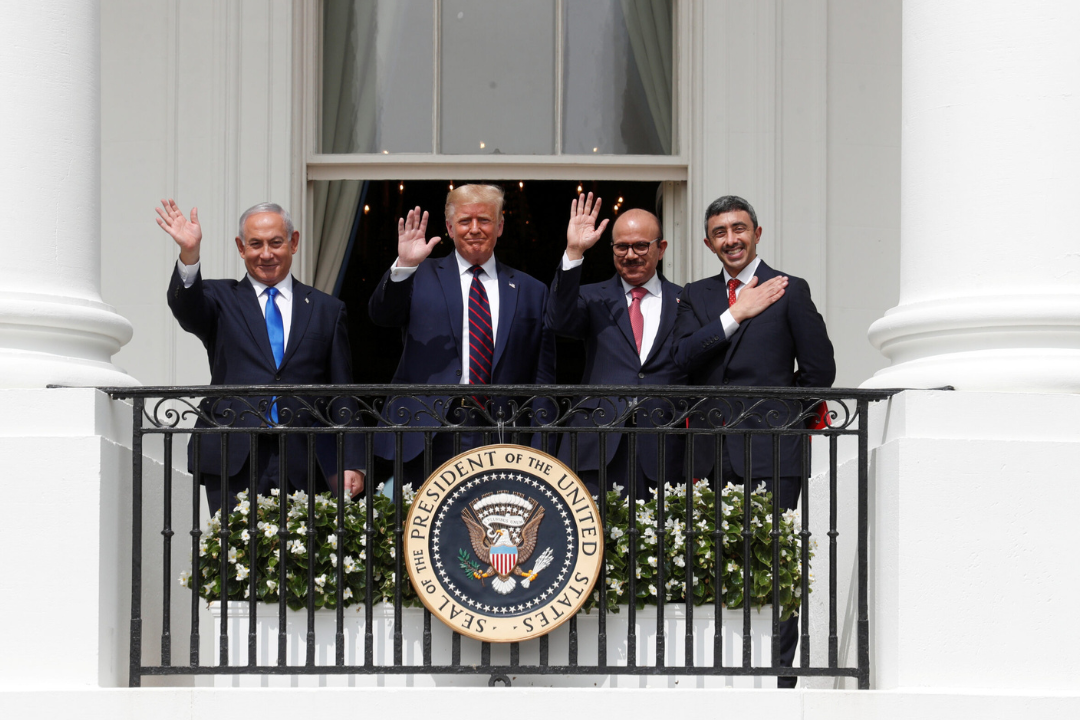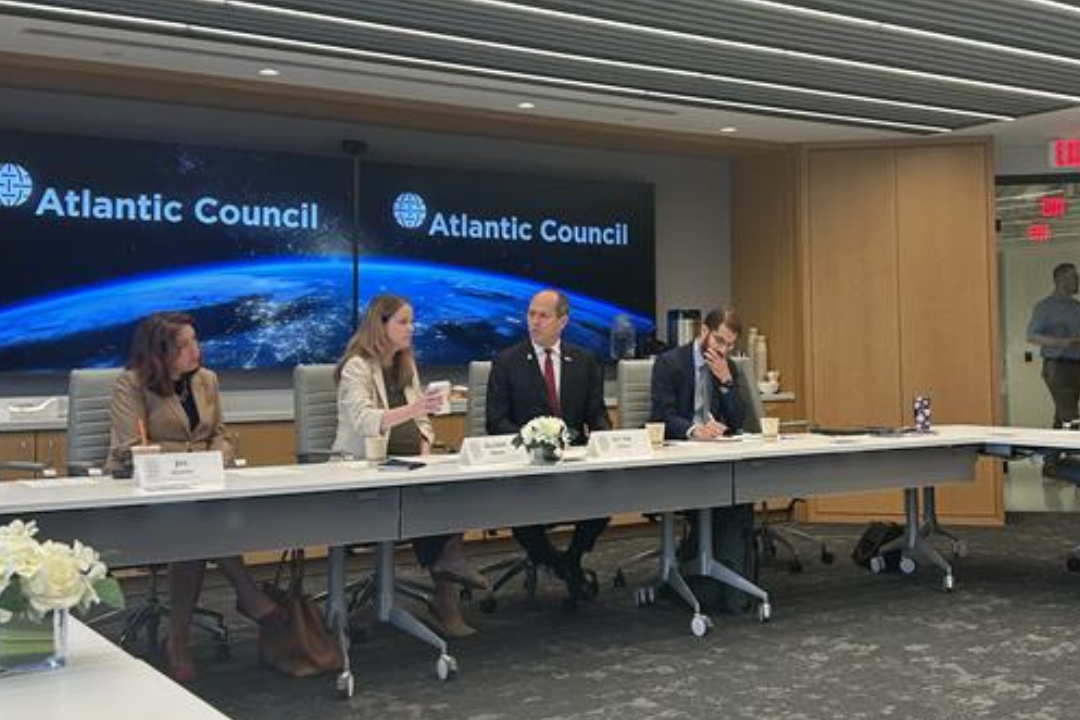By Alissa Pavia and Maayan Dagan
Tunisian President Kais Saied has made no secret of his staunch opposition to the landmark Abraham Accords and Israel’s normalizing ties with its Muslim-majority neighbors. At times, he has even veered into outwardly anti-Semitic remarks to address his disdain for the Jewish State.
Yet despite Saied’s apparent opposition to joining the Abraham Accords, his decision in November 2023 to halt the Tunisian parliament’s controversial bill criminalizing normalizing ties with Israel provided a glimpse into the president’s cost-benefit analysis over measures that could alienate the West completely. It signaled an opening, even if a very narrow one, that the possibility of Tunisian—Israel rapprochement might not be as far-fetched as experts predict, and that even a rogue actor like Saied sees the benefits in joining a Westernized coalition during times of war. Yet in the long run, especially after the war in Gaza, Tunisia’s historical openness to the West might present an opportunity to advance normalization between the two countries.
Stubborn challenges: Israel and Tunisia’s rocky relations
Israel and Tunisia do not currently maintain any kind of formal relations, but this has not always been the case.
Beginning in the 1950s, under former Tunisian President Habib Bourguiba, limited ties developed between the two countries. These included informal connections and meetings between politicians from both sides, initiated by diplomats from each country. The relationship served mutual interests—Israel sought recognition from an Arab state, while Tunisia aimed to secure support for its development, particularly in sectors such as agriculture and tourism. Consequently, in the nineties, Tunisia and Israel established low-level diplomatic relations (culminating in the opening of “interest sections” in each other’s countries, serving as de facto embassies), making the relations between the countries formal.
However, the Palestinian issue has long been a central element of Tunisia’s foreign policy, causing attrition between Israeli and Tunisian diplomatic relations. Tunis has long expressed solidarity with the Palestinian people and their struggle for self-determination and has historically defended the two-state solution. More importantly, Tunisia hosted the Palestinian Liberation Organization (PLO) headquarters from 1982 to 1993 after Yasser Arafat was forced to flee Beirut, Lebanon, then under siege by the Israelis during the first Israel-Lebanon War. Tunis hosted the PLO headquarters until the Oslo Accords, when it relocated to Gaza and the West Bank.
This period helped cement closeness between Tunisians to the Palestinian cause, a sentiment further solidified by Israel’s deadly aerial attack on Hammam Chot on the PLO headquarters in 1985, killing a number of civilians and causing further resentment among Tunisians. Tunisians never forgave Israel for what they perceived to be an illegal incursion on their territory.
In 2000, with the outbreak of the Second Intifada in Israel and Palestine, relations between Israel and Tunisia entered a period of further crisis, leading to the suspension of official ties. While the relationship had deteriorated significantly already, the outbreak of violence between Israelis and Palestinians rendered diplomatic efforts virtually impossible.
A continuation of the deteriorating relations underpinned the decades that followed. During Tunisia’s Jasmine revolution, Israel remained on the fence about improving ties with the new political forces, fearing the rise of an anti-Israel posture. Meanwhile, the Tunisians passed a new Constitution in 2014, underscoring its commitment to the Palestinian cause, and open letters signed by academics and researchers calling for criminalizing ties with Israel circulated among political forces.
Under Saied’s current rule, these tensions have escalated significantly, including when he rejected Israel’s 1948 borders and called for the “full liberation of Palestine,” while avoiding any overt condemnation of Hamas after its October 7, 2023, attacks on Israel. On some occasions, Saied adopted an overtly antisemitic posture, accusing “the Zionists” of plotting the deadly 2023 floods in Libya that killed some four thousand people, a trope linked to the long-held antisemitic prejudice that Jews somehow control the world. His remarks sparked outrage across Israeli media.
Tunisia’s foreign policy has recently shifted markedly into a more anti-Western stance, cozying up to Iran in the process.
In May 2024, Saied visited Tehran to pay respects to the late President Ebrahim Raisi, marking the first-ever visit of a Tunisian president to Iran. That same month, rumors swirled in Italian and French news outlets of unusual air movements by Russian aircraft in the coastal city of Djerba, raising eyebrows at a potential Tunisia-Russian alignment. In August of the same year, Russian Foreign Minister Sergei Lavrov visited Tunis for the second time in over a year, pledging to help the country grapple with its wheat drought.
Why would Tunisia choose to normalize ties with Israel?
But there is even historical precedent to disrupt this trend.
Historically, Tunisia has tended to align more with the West than with the broader Arab world. However, its geographic location has made it essential to maintain strong relations with neighboring countries, particularly Algeria and Libya. While Tunisia has strategic interests in its ties with Algeria, especially in the areas of energy, trade, and finance, former Tunisian President Zine El Abidine Ben Ali sought to moderate the country’s financial connections to Arab countries and aimed to avoid the kind of reliance on crude oil revenues seen in other Arab states in the region.
Beyond the more apparent economic and trade incentives for Tunisia to normalize relations with Israel, Tunis could also gain from reigniting this closer alignment with the West, particularly as Iran and Russia, with whom it has recently signaled an openness to closer ties, face mounting setbacks that may force them to turn inward. Both Moscow and Tehran have faced major setbacks on the international stage. The former is dealing with the ongoing conflict in Ukraine and an exorbitant number of human losses, and the latter is temporarily retreating after receiving a significant blow from Israel during the ongoing regional war between Israel and Iranian proxies. Tunisia is far from being a strategic priority for either power, and these setbacks should worry Tunisia, which might be left on its own to deal with an increasing migration threat from sub-Saharan Africa and an impending economic crisis.
Another factor that might lead Tunisia to normalize ties with Israel is the potential for hedging between regional powers. Tunisia is particularly susceptible to external influences from countries with greater international stature, particularly when looking at its ongoing relationship with Algeria. Algeria, for its part, has steadily been courting Tunisia by supporting Tunis economically and politically, including a 2022 grant worth 200 million dollars from President Abdelmadjid Tebboune to help with the country’s struggling economy, and offering leniency and cheaper prices on electricity and gas from the Transmed pipeline. Tunisia, grappling with high public debt and stagnant growth, and with the economy desperately reeling since the Covid-19 pandemic, has had little choice other than to accept Algeria’s offerings. Algeria’s rationale for influencing Tunisia stems from a need to counter perceived external Western interference—exacerbated by the signing of the Abraham Accords between its regional rival Morocco and Israel—which has heightened its sense of isolation and vulnerability.
Normalizing ties with Israel could allow Tunisia to hedge between regional powers to avoid full alignment with Algeria and maximize its personal gains. It would reduce Tunis’ risk of overdependence on Algeria, and limit the risk of collateral damage should the relationship sour and challenges emerge for Algeria itself.
Israel’s interest
Normalization between Israel and Tunisia could offer Israel several potential advantages. These include contributing to regional stability and peace, expanding international recognition and support, and possibly encouraging other countries to engage more openly with Israel. Additionally, normalization could pave the way for stronger ties in trade, tourism, and investments, especially in the field of agriculture and irrigation. It would also promote Israeli legitimacy in the region, reducing international efforts to isolate it, increasing its international standing, and opening new business opportunities in Arab markets.
From a strategic perspective, improved relations with Tunisia might also help limit Tunisia’s cooperation with countries hostile to Israel, such as Algeria, Libya, and Iran. It could even reduce the potential for renewed activity by terrorist groups operating in or from the region.
That said, many of these benefits are not unique to Tunisia—they reflect the broader advantages Israel could gain from normalizing relations with any additional Arab country.
Threats and pathways to improvement
On the other hand, normalizing with Israel poses a severe threat to Tunisia, which Saied may not be apt to overlook. Firstly, it will inevitably fracture its relationship with Algeria, alienating Tunis’ primary economic backer. Algeria has had no qualms in stressing its disdain for the Abraham Accords, recently reiterating its historic backing of a full Palestinian state, the support of which is enshrined in its constitution. Algeria would certainly take it personally and would do everything in its power to retaliate, including rescinding its economic partnership, nullifying diplomatic ties, and reinstating tighter controls on late payments.
Secondly, Saied will face severe internal backlash. Tunisians have been at the forefront of pro-Palestinian demonstrations, the likes of which the country has not witnessed since the 2011 revolution. In a time when Saied is tightening control over the country, he still understands the importance of maintaining public support, and normalizing ties with Israel may pit the population against him, lessening his power and legitimacy.
While Israel perceives normalization with Tunisia as naturally beneficial, the same cannot be said in reverse, and normalization between the two does not seem feasible as long as the war in Gaza continues.
If the West wished to see normalization between these two countries prevail, it would have to provide Tunis with significant concessions. These could take the form of economic support through International Monetary Fund (IMF) loans with fewer austerity measures, or simple economic bailout packages with few strings attached.
However, such a decision carries significant risks, namely the potential erosion of the IMF’s credibility and legitimacy on the international stage. Additionally, the West, particularly the United States, can seek to leverage its ongoing military partnership with Tunisia to retain strategic influence. This could involve conditioning Tunisian aid to agreements such as the obligation to maintain secrecy over military knowledge and capabilities, especially when dealing with enemies such as Iran. This could restrict Tunisia’s movement while placing greater value on Washington’s ongoing support.
Normalization between Arab countries and Israel is still a top foreign policy agenda for US President Donald Trump’s administration. While Israel’s war rages on in Gaza, Trump has made no secret of his wish to see Saudi Arabia join the Abraham Accords, a feat which will undoubtedly help him reach his objective of becoming the peacemaker of the century.
While the potential for these two countries to normalize may seem farfetched, there are many strategic benefits for both that go beyond what meets the eye. Analysts may do well to keep an eye out for potential signs of rapprochement, as even small shifts may signal deeper political changes in the region.
Alissa Pavia is the Associate Director of the Atlantic Council’s North Africa Program.
Maayan Dagan is a visiting research fellow at the Atlantic Council’s Middle East Programs.







